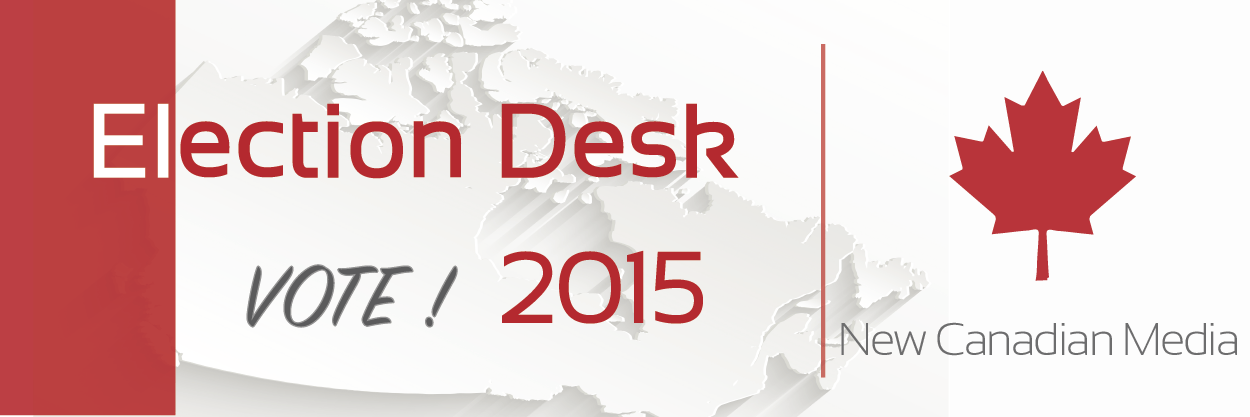
While candidates in Quebec are doing their best to reach out to new Canadian voters in the current federal elections, some advocates are hoping that the current Syrian refugee crisis will widen the conversation on how to accept newcomers.
Although political parties have yet to discuss immigration at large in this campaign, members of organizations working for people without status in Canada say this group continues to be overlooked.
“Clearly we pay attention to what’s going on in politics and have some demands as a group, but those aren’t things that are necessarily going to be achieved by a change of leadership in Ottawa,” says Jaggi Singh, an activist who works with Solidarity Across Borders in Montreal.
One of the group’s demands is a regularization program that allows all non-status people who live in Canada to have status. Singh says it’s an issue that will require a significant amount of political mobilization to achieve.
The group is also preparing to defend migrants who are facing deportation after the Conservative government lifted the moratorium on deportations to Zimbabwe and Haiti, Singh adds.
Fayçal El-Khoury, the Liberal candidate in Laval–Les Îles, says both issues are on his party’s radar.
“A Liberal government will invest at least another $100 million this fiscal year to accelerate the processing of asylum applications, without diminishing the quality of the process, and to increase the means available to service sponsorship and settlement in Canada,” he says.
“We can better treat all files received at Immigration Canada including those related to deportations of people from Haiti or Africa,” he adds.
Immigrating to Quebec
El-Khoury came to Canada in 1976 to escape war in Lebanon. He studied civil engineering at Concordia University and started his own construction company.
“We chose to settle in Quebec for the beauty of its landscapes and the warmth of Quebecers towards immigrants.”
“We chose to settle in Quebec for the beauty of its landscapes and the warmth of Quebecers towards immigrants,” he says. “Moreover, since we already spoke French, it was easy for us to come here.”
El-Khoury became the Liberal candidate for Laval–Les Îles in November of last year, and is just one of several Montreal-area federal candidates born outside of Canada.
The NDP’s Paulina Ayala immigrated to Quebec from Chile in 1995. An activist against the Pinochet dictatorship, she says she was disappointed by the democratic transition that followed.
She studied at Université du Québec à Montréal (UQAM)with the intention of returning to her home country, but says after meeting her husband and developing new roots, she decided to stay.
“The love for the politics of my country is very important, so it was a very important choice to become a Canadian,” she says. “I studied the pros and cons very carefully.”
She says part of the reason she became a citizen in 2006 was so she could participate in Canadian politics. In 2011, Ayala defeated the three-term Liberal incumbent, Pablo Rodriguez, to become the MP for Honoré-Mercier.
“People look at me like a model, so when I tell young women I am the first Latin-American woman in Parliament, I always add that I’m not the last,” she says.
“They must re-learn everything, pass exams, and despite all this, it doesn’t mean you will have a job in your field.”
Ayala says in her work as a teacher, learning French was one of the biggest challenges to integration. She says that for other immigrants, the qualifications needed to belong to Quebec’s professional associations and orders pose extra barriers.
“They must re-learn everything, pass exams, and despite all this, it doesn’t mean you will have a job in your field,” she says. She adds that in Montreal it is very common to meet taxi drivers who were engineers before they came to Canada.
“This is an enormous brain drain,” she says.
Collaborating on immigration policy
Ayala says the federal government must engage in more conversation with Quebec, which regulates its own immigration targets and criteria.
While he welcomes the discussion, Singh says the parties’ promises do not go far enough.
“A meaningful response would be an opening of our borders to allow for large numbers of refugees and migrants to come to Canada.”
“This is an issue that goes beyond just one group of refugees,” he says. “It goes to structural changes that have been made to Canadian immigration policies over the last two decades that have made the system more temporary and more difficult for refugees to get in.”
“A meaningful response would be an opening of our borders to allow for large numbers of refugees and migrants to come to Canada,” he says.
He adds that while this policy might seem radical, Germany is expected to accept 800,000 Syrian refugees by the end of the year.
Candidates for the Bloc Quebecois and Conservative Party of Canada did not respond to requests for an interview. A Simon Fraser University study provides a brief overview of where each party stands on several immigration issues based on past policies.





